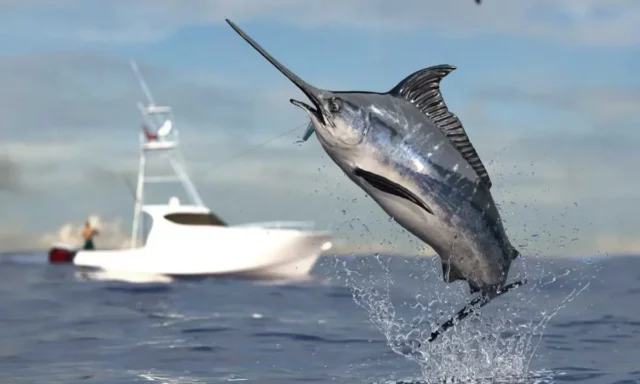With the objective of training women from coastal areas as sailors and captains of tourist and sport fishing boats and promoting their labor inclusion in these activities, the Costa Rican Federation of Tourist Fishing (FECOP) in support of women leaders from Guanacaste, began the project called , “Women’s Nautical School“.
Around 15 women participate in this pilot training program that began in Playas del Coco, which seeks to open spaces for them in these trades and promote their autonomy and their ability to generate income and own resources from tourist fishing and sports.
“Traditionally, tourist and sport fishing have been activities almost exclusively for men. In general, it is a union where women have not had much participation as sailors or captains. Sport and tourist fishing has been growing in various coastal areas of the country, which represents an excellent business opportunity to include them in economic activities with good remuneration”, said the director of FECOP Projects, Henry Marín.
The School was born under the vision of Jokselin López, who has been a sailor and who, together with her husband, manages a family business with boats dedicated to offering sport fishing and tourist tours in the area.
“I am an equipment assembler and customer service for fishing vessels, I was also a sailor for two seasons, and during this time, I have seen how we need girls on board and the need to incorporate them in these jobs, that’s why I said, ‘hands to work’, I sought the support of FECOP and together with them, we managed to generate the necessary contacts to start the project”, the leader of the initiative
Training process
Through a continuous training process, the participants receive training in nautical ropes (knots and their application), basic mechanics inboard and outboard, lures and bait, boat maintenance, radio transmission, basic oceanography and maritime legislation, as well as a Course for quality in customer service.
Likewise, the course has included coastal and offshore fishing practices 40 nautical miles from the coast (74 kilometers), where they have put their knowledge and skills into practice in designated vessels with captains and sailors who are supporting the project by donating their time, knowledge and use of their boats.
“Our idea is to provide them with all the knowledge in seamanship, so that they can develop the same skills and abilities that a sailor has and be reliable for the job,” López added.

Pamela Contreras, one of the project participants, said that, despite coming from a family dedicated to fishing, she never had the opportunity to do it
“My father is a fisherman, I am the daughter of a captain and a sailor, my brothers also have sport fishing boats, through this project I gave myself the opportunity to get involved and ‘throw into the water’. From this, I would like to find a job and take advantage of what I am learning to get ahead, the truth is that I like this and it attracts me. I know of many women who would like to participate in this new project and I tell them that if they are given the opportunity, they should appreciate it and take advantage of it because it is really worth it,” she said.
“What satisfies me the most is to see that they are extremely committed and excited, that they are taking advantage of this great opportunity that all the organizations and people who are out of love are giving them, because they believe in this,” said the promoter of the project, who, In addition, she mentioned that there are already companies interested in providing them with work and hopes to be able to open new groups that allow more women to be trained as sailors.
According to a FECOP study in 2019, sport tourism fishing contributed around US$520 million annually to the Costa Rican economy, generated more than 33,000 direct and indirect jobs, and represented 13% of the country’s tourism revenue.
A study in 2022 by the International Center for Economic Policy for Sustainable Development of the National University, detailed that the annual economic contribution of sport fishing and tourism at the local, national and international level is around USD $21,001,137 only for the area of influence of Cocos Island, being the most important economic activity for the area.
About FECOP
The Costa Rican Fisheries Federation is a nonprofit organization dedicated to promoting vibrant and sustainable coastal communities, where sport, artisanal, and commercial fishing groups work together to ensure that the oceans’ resources are protected from overfishing today and for future generations. FECOP promotes through public and private partnerships sustainable fishing practices to create jobs, science, research, biology, economics, and conservation education.

For those who have experienced shifts in consciousness and know that more peace, joy, and love awaits in a better living environment. A bold shared vision. A living community and hub for innovation. A sustainable ecosystem for living and working. A model for the new future.
